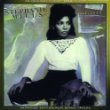Throughout the 1970s, '80s, and '90s, Stephanie Mills established herself as a versatile powerhouse just as at home sultrily conveying a quiet-storm ballad as she was belting out gospel-rousing lines on the Broadway stage. Even now, her live shows draw captive audiences longing to hear favorites ranging from her signature number, "Home" (from Broadway's The Wiz),to late '70s/early '80s soul-disco gems ("Never Knew Love Like This Before," "Sweet Sensation," "Two Hearts") and late-'80s/early-'90s anthems ("I Feel Good All Over," "Something in the Way You Make Me Feel," and "Comfort of a Man"). One important phase of Mills' career, however, has been frequently overlooked in both the history books and the singer's own concerts.
Throughout the 1970s, '80s, and '90s, Stephanie Mills established herself as a versatile powerhouse just as at home sultrily conveying a quiet-storm ballad as she was belting out gospel-rousing lines on the Broadway stage. Even now, her live shows draw captive audiences longing to hear favorites ranging from her signature number, "Home" (from Broadway's The Wiz),to late '70s/early '80s soul-disco gems ("Never Knew Love Like This Before," "Sweet Sensation," "Two Hearts") and late-'80s/early-'90s anthems ("I Feel Good All Over," "Something in the Way You Make Me Feel," and "Comfort of a Man"). One important phase of Mills' career, however, has been frequently overlooked in both the history books and the singer's own concerts. From 1982 to 1984, the sophisticated chanteuse released three albums for the late Neil Bogart's Casablanca label, commencing with Tantalizingly Hot and concluding with I've Got the Cure. In between those two sets (which both featured their share of impressive moments), she released what is easily her strongest full-length effort of the entire decade, 1983's Merciless. Newly reissued by SoulMusic.com Records, this musical affair is a striking tour de force from start to finish.
Opening with a hearty rendition of Prince's "How Come U Don't Call Me Anymore" (a song originally appearing on the B-side to His Royal Badness's "1999"), Merciless is instantly fueled by Mills' fiery phrasing and compelling nuances—the perfect complement to the deceptively spirited tune's church-infused chord progressions and triple-feel groove. The single reached #12 on Billboard's R&B chart in the fall of '83, serving as a natural musical continuation of the previous year's "Keep Away Girls." Merciless progresses from the swaying funk of "How Come" to the boogie wizardry of "Never Get Enough of You," a top-down, synth-smart jam replete with driving bass, glowing keyboard work, and a persistent groove. The fullness of the arrangement erupts excitedly with the finesse of Mills and her background vocalists' glow instilled into the irresistible hook. Lest listeners expect her to get too comfortable in one sort of groove, she slows down the pace and makes the mood deep on the intensely emotional "Eternal Love."
The lovely melodies of "Eternal Love" give way to a somewhat lighter environment on "His Name Is Michael," a duet with famed theatre/backing singer Peggi Blu. The rich tones and strong delivery of both ladies make for seamless vocal interplay, putting a refreshingly humorous spin on the story of a smooth operator—and turning out much more effective and satisfying than later "dueling duets" dealing with similar story lines (e.g., Brandy and Monica's "The Boy Is Mine").
During the second half of Merciless, Mills exhibits an equally firm footing in balancing beauteous ballads with rhythmically riveting roof-raisers. Although "My Body" might be the song on the album which one would least expect to be written by the late Luther Vandross, the shimmering number is an all-out ode to curing one's personal and physical ails by letting loose on the dance floor. Brought to life with the help of a commanding chorus, jazzy ostinati, and piano lines peppered with early traces of house music, the jam would have been a surefire hit with club-goers who got down to "Put Your Body in It" and "You Can Get Over" had it been released as a single. She did, however, accomplish that feat again, with the single "Pilot Error" reaching #3 on the club play registers. Something of an anomaly in her discography, the new-wave-tinged dancer is a meeting of synth-pop elements with bits of rock guitar backing the gutsy and sassy vocal lines. (It bears mentioning here that the song's promotional music video is one of the most clever and hilarious clips of the '80s.) Rounding out the soft and mellow segments of Merciless, the cool and breezy "Do You Love Him?" and dreamy "Since We've Been Together" once again demonstrate Mills' ability to effortlessly glide from tenderly assuaging to brazenly passionate.
While Mills arguably established her most definitive niche with subsequent albums such as 1987's If I Were Your Woman and 1989's Home, Merciless is an often overlooked entry in her 15-album career which deserves closer examination. Atop a markedly diverse array of memorable songs bearing tightly structured production (courtesy of David Wolfert and Gary Klein, as well as the late Phil Ramone), the petite dynamo is fully engaged in her creative element. It all makes for an enchanting listen from beginning to end. Highly recommended.
by Justin Kantor
Connect with Justin at http://twitter.com/justinkantor4u

